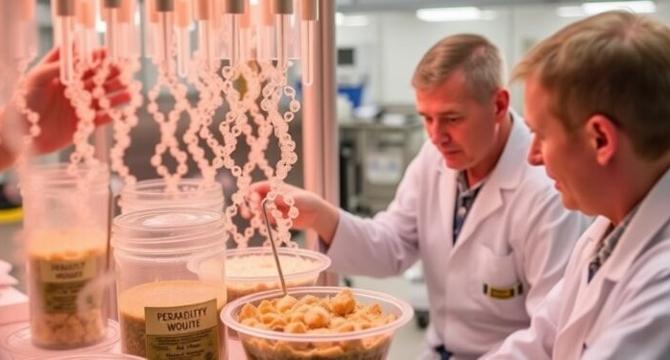Bioengineer
1w
160

Image Credit: Bioengineer
Revolutionary Bioprocess Converts CO2 and Electricity into Sustainable High-Protein Food
- Researchers from Xi'an Jiaotong University and the Tianjin Institute of Industrial Biotechnology have created a bioprocess that converts CO2 and electricity into single-cell protein, according to a study in Environmental Science and Ecotechnology. The system integrates anaerobic and aerobic processes through a dual reactor. In the first stage, microbial electrosynthesis is used to create acetate, a feedstock for the second stage in which Alcaligenes aerobic bacteria produce single-cell protein. The bioprocess produced 17.4 g/L of dry cell weight, containing 74% protein. The SCP could be used as an animal feed additive or for human consumption.
- The bioprocess minimises the need for pH adjustments and wastewater creation, making it a sustainable alternative to traditional food production. The study's authors believe that the research provides an insight into a circular carbon economy that turns CO2 into a useful resource instead of reducing its levels. The method may become a cornerstone for addressing global food scarcity and climate change issues by empowering communities to produce sustainable and nutritious food sources. The bioprocess is a crucial step forward in developing farming solutions that mitigate greenhouse gases.
- By repurposing CO2 emissions, food production can also contribute to the United Nations Sustainable Development Goals. The approach to the problem suggests multilateral coordination among industrial players, policymakers, and researchers. The sustainable nutrition offered by the system could enrich diets for livestock and aquaculture and provide new options for the plant-based protein market. It may also create a new category of high-quality protein sources as the SCP from the system outperforms conventional sources such as fish meal and soybean.
- The research is a revolutionary step in sustainable protein production and suggests the potential for refining SCP methods to meet additional dietary needs. Capitalizing on the versatility of microbial proteins, the system could evolve into an even more efficient SCP production system and become a tool to address acute food shortages in developing regions. By localizing food production, communities can gain control over food supply chains and leverage biotechnological advancements. The research encourages the collaboration of complementary technologies, such as selective breeding for high-yield microbial strains.
Read Full Article
9 Likes
For uninterrupted reading, download the app